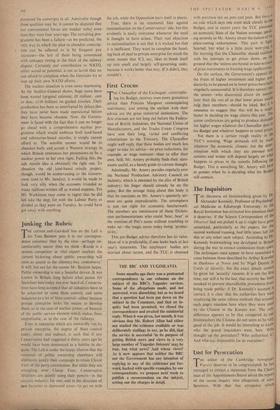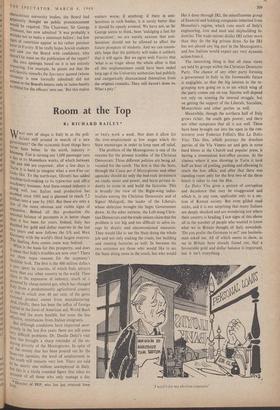Lust for Persecution
THE editor of the Cambridge newspaper Varsity deserves to be congratulated; he has managed to extract a statement from the Chair' man of the Appointments Board about the report of the recent inquiry into allegations of anti. Semitism. With that fine arrogance which characterises university bodies, the Board had apparently thought no public pronouncement would be required. The Chairman, Sir George Thomson, has now admitted 'it was probably a mistake not to make a statement before'; but few signs of contrition appear in his rather petulant letter to Varsity. If he really hopes Jewish students will now use the Board with confidence, why doesn't he insist on the publication of the report? His own apologia based on it is not entirely reassuring. For example, he points out that the anti-Semitic remarks the Spectator quoted (whose existence is now formally admitted) did not appear in the Board's letters; only in 'notes hastily scribbled for the officers' own use.' But this makes matters worse, if anything; if there is anti- Semitism in such bodies, it is surely better that it should be openly avowed. We have not, as Sir George seems to think, been 'indulging a lust for persecution'; we are merely anxious that anti- Semitism should not be allowed to affect the future prospects of students. And we can reason- ably hope that the publicity will make it unlikely that it will again. But we agree with Varsity that `what is so tragic about the whole affair is that all this unpleasantness could have been ended long ago if the University authorities had publicly and categorically disassociated themselves from the original remarks. They still haven't done so. What a pity!'



































 Previous page
Previous page